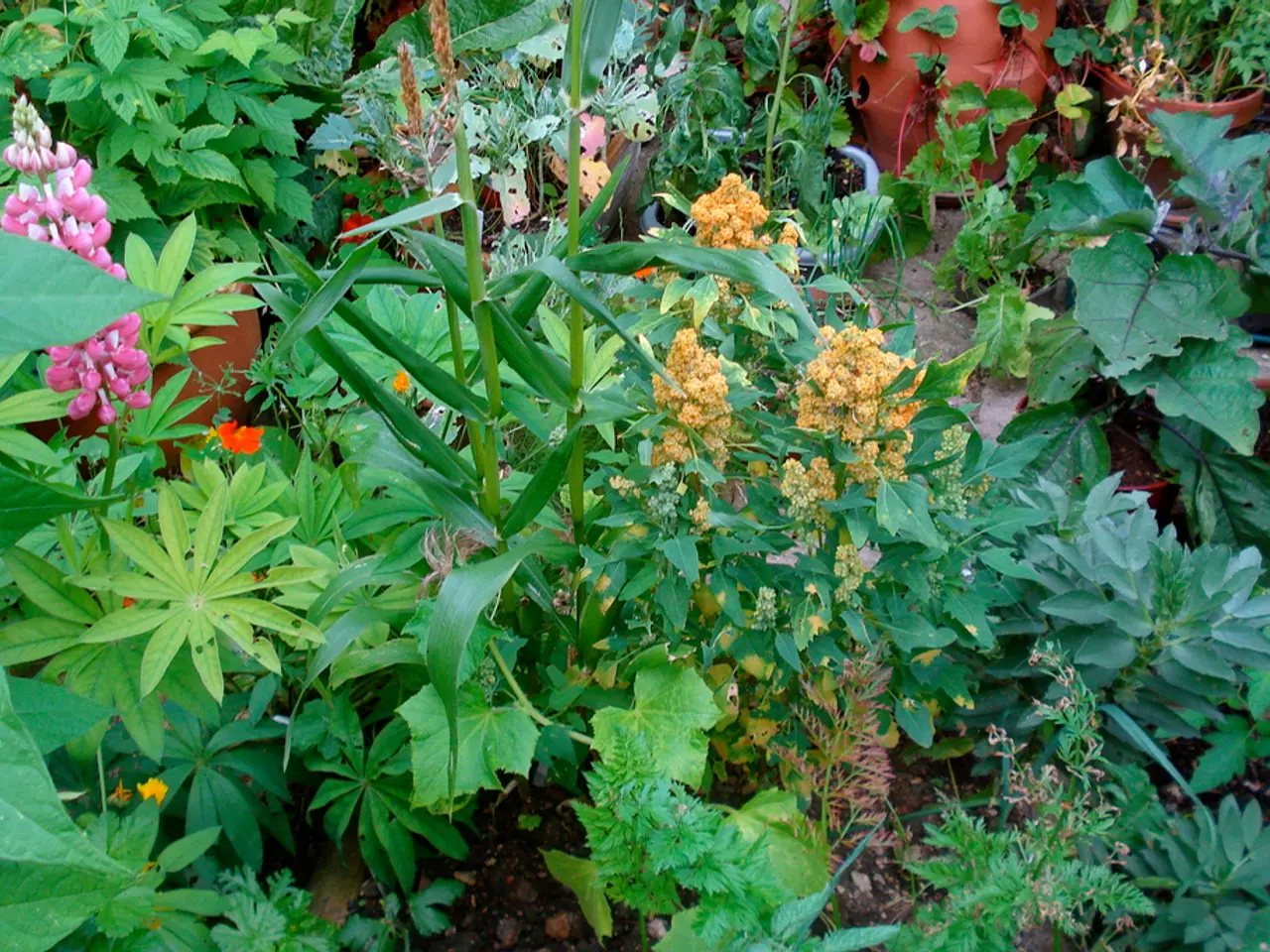Boost wellbeing through gardening: exploring the scientific evidence supporting its benefits for mental and physical health
In the pursuit of a healthier lifestyle, many are turning to gardening as a means to improve both physical and mental well-being. This activity, once considered a leisurely pastime, is now recognised as a powerful tool for promoting holistic health.
Gardening offers a unique blend of moderate physical activity, exposure to nature, sensory engagement, and purposeful interaction with plants. These elements combined support immune function, reduce stress and anxiety, improve cognitive health, and enhance overall well-being.
Physical health benefits arise from gardening's moderate-intensity physical activity such as digging, planting, raking, and weeding. These tasks improve strength, flexibility, cardiovascular health, balance, and proprioception (body awareness). Regular gardening helps maintain a healthy body, lowers waist circumference, and stabilises heart rate.
Improvements to the immune system come from regular exposure to soil microbes, fresh air, and sunlight. Gardening often leads to a healthier diet rich in fruits and vegetables, further supporting bodily functions and immunity.
Mental health improvements include reduced symptoms of depression, anxiety, and stress. Gardening reduces cortisol (the stress hormone), improves mood, and helps fix anxiety or mood disorders through consistent contact with nature and purposeful activity.
Cognitive benefits stem from engaging the brain in planning, memory use, and learning through gardening tasks. This activity is associated with improved memory, enhanced neuroplasticity (the brain’s ability to heal or adapt), and reduced risk of dementia, especially in older adults.
Sensory and emotional engagement with plants and nature fosters an intimate connection to the environment on a detailed scale, which promotes mental restoration, attention recovery, and an increased sense of purpose and self-esteem.
Social and lifestyle benefits include community connection when gardening socially or in shared spaces, promoting longer and more fulfilling lives.
Gardening also contributes to maintaining mobility and enhancing bone density, protecting against osteoporosis. Trees remove large quantities of toxins through their foliage, trapping them in leaves that later break down in the soil, helping filter air pollution.
More than half of the UK population are gardeners, and the number increases as people get older. Stronger bones mean fewer fractures, and gardeners have healthier levels of vitamin D. Birdsong improves cognitive performance and physiological wellbeing, as well as reducing perceived pain.
Forest bathing sessions in Japan demonstrated benefits to immune systems, with effects visible in blood tests for several weeks. Subsequently, a big jump in the diversity of children's skin and gut bacteria was observed after playing in forest soil and peaty play areas.
Gardening causes falls in blood pressure, heart rate, and body mass index, protecting against various diseases. Vitamin D deficiency can lead to low mood and fatigue, and gardeners have reduced levels of it. The microbiology of soil affects gut health and immune wellbeing.
A 10% increase in average exercise by adults could avoid 6,000 premature deaths and save the NHS £500 million annually. 87% of people have access to their own outdoor space, and the solution to many health problems may be just outside the window, in the garden.
In conclusion, gardening delivers holistic health benefits through a blend of physical exercise, immune-boosting environmental exposure, emotional/natural sensory connection, cognitive engagement, and positive lifestyle changes—all supported by growing scientific evidence. Embrace the green thumb, and reap the rewards of a healthier, happier life.
- Gardening, recognized as a potent tool for promoting holistic health, offers a unique amalgamation of moderate physical activity, nature exposure, sensory engagement, and purposeful plant interaction.
- Physical health advantages are derived from gardening's moderate-intensity physical activities like digging, planting, raking, and weeding, which enhance strength, flexibility, cardiovascular health, balance, and body awareness.
- Regular gardening supports immune function due to continual exposure to soil microbes, fresh air, and sunlight, while promoting a healthier diet rich in fruits and vegetables.
- Mental health enhancements come from reduced depression, anxiety, and stress symptoms, as gardening decreases cortisol levels and boosts mood, often helping with anxiety or mood disorders.
- Cognitive advantages include improved memory, neuroplasticity, and reduced dementia risk, stemming from brain engagement in planning, memory use, and learning during gardening tasks.
- Gardening fosters an intimate connection to the environment, prompting mental restoration, attention recovery, and increased purpose and self-esteem, while contributing to social and lifestyle benefits such as community connection and improved mobility.




